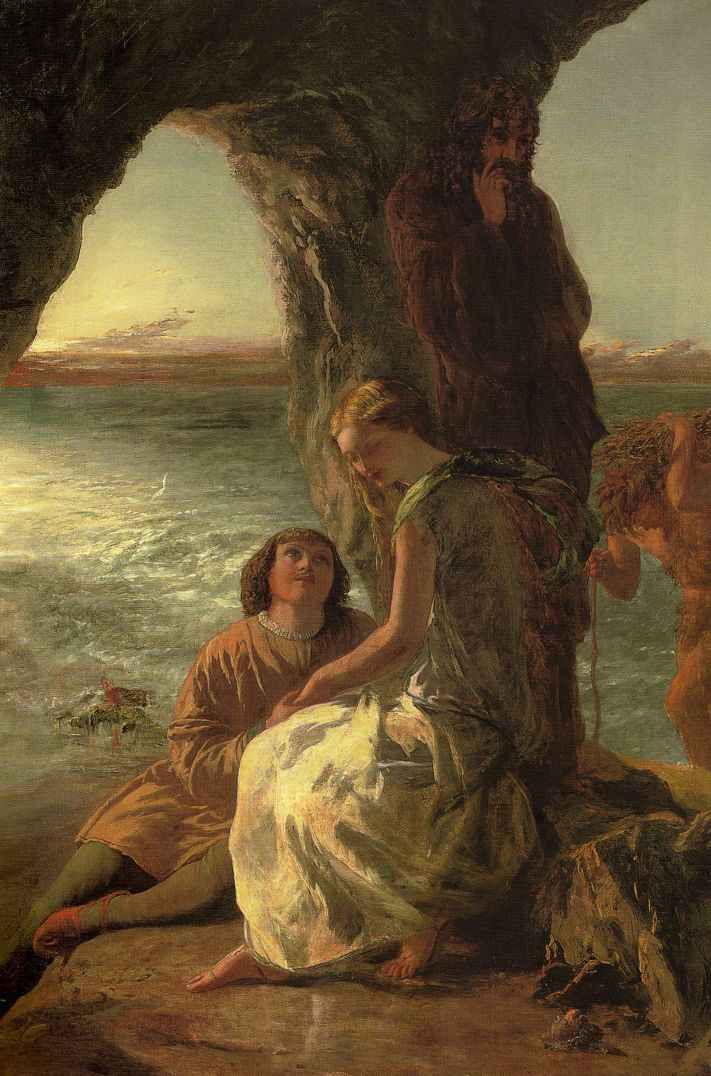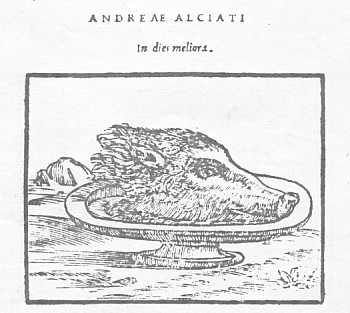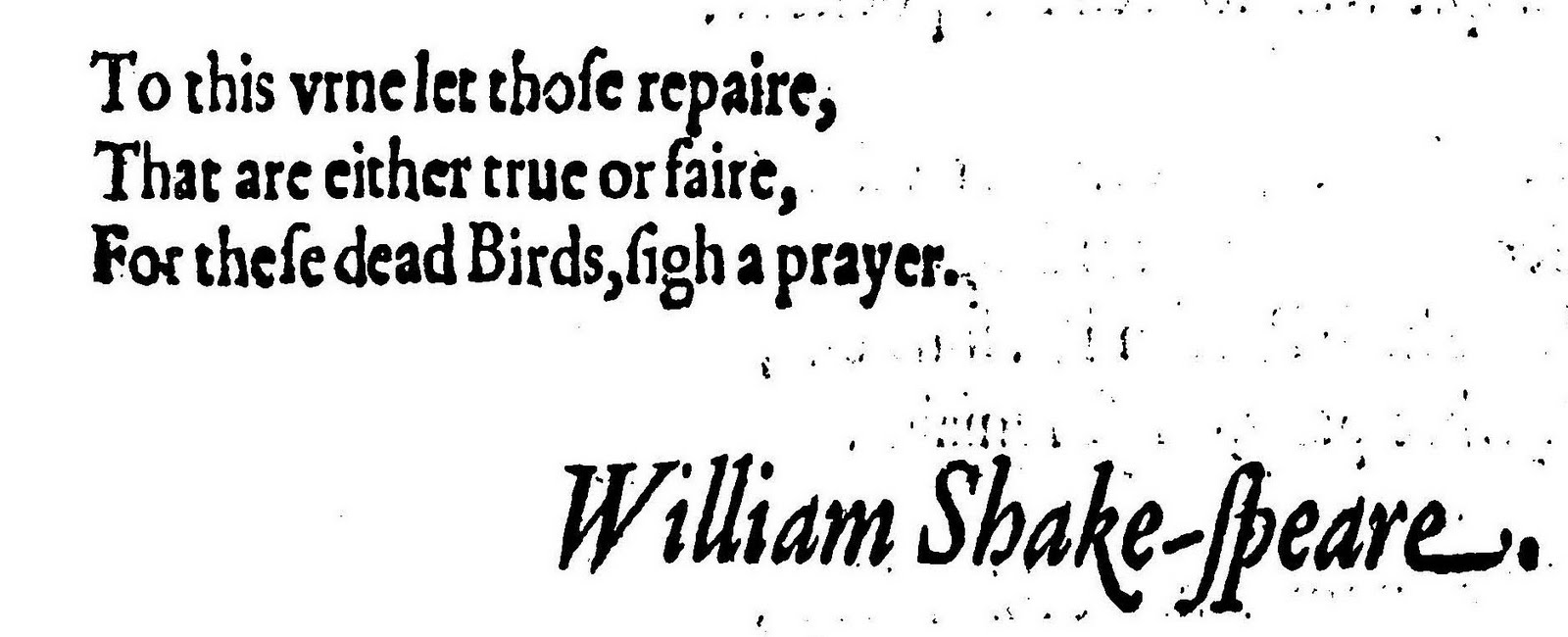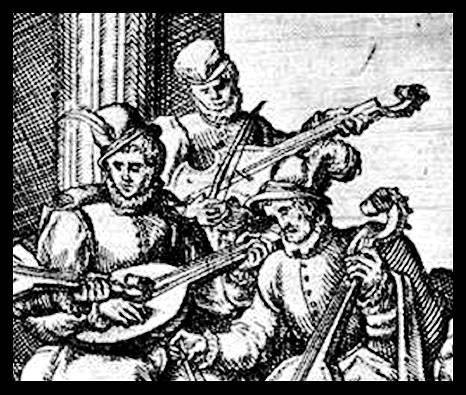Phoenix of The Tempest
Now I will believe…
…that in Arabia
There is one tree, the phoenix’ throne, one phoenix
At this hour reigning there.
One of the silliest ideas in Shakespeare studies is that Ben Jonson hated The Tempest. If all we had to go on were his sly comments in Bartholomew Fair (1614), there might be some excuse for such myopia, but no poet of the era left behind a more comprehensive road map of his artistic journey. Tag along with him for any part of that road, be it through his plays, poems, masques or prose, and you’ll soon gauge the temper of the man: bold beyond belief, short-tempered, righteous, erudite, funny, self-deprecating, wily, smart,
generous, beloved and scorned. If he heaped gorgeous praises on those he deemed worthy, no one suffered a fool with more gleeful relish. Prospero’s reforming project coincides with his own: how he would have loved to lure a ship of vicious ninnies to an island and pour into their captive ears and eyes the visionary music of his Art, in order to boil their brains till they came to their senses.
But you don’t need to read all of Jonson’s imposing “Works” to find proof of his essential sympathy with The Tempest. All you need is one poem, which Sebastian’s sudden belief (3.3.21-4) in a Phoenix reigning “at this hour” would have called up for the play’s original audiences. Two references in this scene point us towards Jonson. Sebastian, a slothful, foul-mouthed lord, had just been whispering treason with Antonio when Ariel arrives with strange music and a banquet to ravish their senses. Ariel’s magic also infects Antonio’s belief system; he seconds Sebastian’s outburst, and proclaims himself ready to swear to “what else does want credit”, such as the tales of “travelers” [that] ne’er did lie.
Mention of travelers eventually leads Gonzalo to muse about the stories told by “Each putter-out of five for one“. As Theobald discovered long ago, the meaning of this phrase will be found in Jonson’s highly popular Every Man Out of His Humour (published in quarto three times in 1600). Both references – to traveler and the “putter-out of five for one” – invite us to recall Jonson’s vain-glorious traveler Puntarvolo, who made precisely this wager.
Once we pick up the author’s cues and land in Jonson territory, we have a new light to shine on Sebastian’s Phoenix. In a play attributed solely to Shakespeare, any mention of this mythological bird should send us back to Robert Chester’s Love’s Martyr: Or Rosaline’s Complaint of 1601, where we’ll find Shakespeare’s poem “The Phoenix and the Turtle” published for the first time. This intertextuality is reinforced by the bird’s appearance in a scene that not only begins with two unpleasantly witty Lords plotting the king’s death but also contains three phrases or references that call up works from the time of the Essex Rebellion.
Shakespeare appears to have had some sympathy with Essex and his followers, (perhaps blindsided by his devotion to Southampton) whereas Jonson, in Cynthia’s Revels, (1601) publicly chastised Essex in the figure of Acteon. Here’s the rub: through Ariel, Prospero’s reforming magic elicits from Sebastian a new-found belief in a living Phoenix; Shakespeare, if you recall, ends his threnody on the Phoenix with
Now let us turn to Jonson, who, as it happens, also wrote a “Poetical Essay” on the phoenix for Love’s Martyr. His contribution is placed last, as if to give him final say among the four poets (Marston and Chapman are the other two contributors). Charles Downing (God in Shakespeare, 1901) believes that Jonson’s
“Epode will be easily recognised as the germ of The Tempest, and in it the reader will find my interpretation so far of the play…confirmed in important particulars.”
By “germ” it seems to me that Downing has in mind an originating impulse such as we might expect to come from the author himself. After reading all four of Jonson’s contributions to Love’s Martyr, I agree with Downing’s assessment of the importance, in particular, of his Epode (reprinted later in The Forest). If you aren’t already familiar with this poem, (reprinted below the turtle) I hope you’ll take the time to read it carefully and impartially, to judge for yourself. I do believe you’ll find, in embryonic state, the essential concepts regarding reason, passion, chastity and virtue that underlie Prospero’s reforming “project”. If Shakespeare truly wrote The Tempest, all by himself, then it is his belated salute of honor to Jonson’s moral vision in Love’s Martyr.
BEN JONSON’S EPODE.
Not to know vice at all, and keep true state,
Is virtue and not fate
Next to that virtue is to know vice well,
And her black spight expel;
Which to effect (since no breast is so sure
Or safe, but she’ll procure
Some way of entrance) we must plant a guard
Of thoughts, to watch and ward
At the eye and ear, the ports unto the mind,
That no strange or unkind
Object arrive there, but the heart, our spy,
Give knowledge instantly,
To wakeful Reason, our affection’s King;
Who, in the examining,
Will quickly taste the treason, and commit,
Close, the close cause of it.
‘Tis the securest policy we have
To make our sense our slave.
But this true course is not embraced by many,
By many! Scarce by any.
For either our affections do rebel,
Or else the sentinel,
That should ring ‘larum to the heart, doth sleep:
Or some great thought doth keep (as ambition)
Back the intelligence, and falsely swears
They’re base and idle fears
Whereof the loyal conscience so complains.
Thus by these subtle trains,
Do several passions invade the mind,
And strike our reason blind.
Of which usurping rank, some have thought love
The First; as prone to move
Most frequent tumults, horrors, and unrests
In our inflamed breasts:
But this doth from the cloud of Error grow
Which thus we over-blow.
The thing they here call love is blind desire,
Armed with bow, shafts, and fire:
Inconstant like the sea of whence ‘tis born,
Rough, swelling, like a storm,
With whom who sails rides on the surge of fear,
And boils as if he were
In a continual tempest. Now true love
No such effects doth prove;
That is an essence far more gentle, fine,
Pure, perfect, nay, divine.
It is a golden chain, let down from heaven,
Whose links are bright and even;
That falls like sleep on lovers, and combines
The soft and sweetest minds
In equal knots: this bears no brands, nor darts
To murder different hearts,
But, in a calm and godlike unity,
Preserves community.
O, who is he that, in this peace enjoys
The Elixir of all joys?
A form more fresh than are the Eden bowers,
And lasting as her flowers;
Richer than Time, and as Time’s virtue, rare;
Sober as saddest care;
A fixed thought, an eye untaught to glance;
Who blest with such high chance,
Would at suggestion of a steep desire
Cast himself from the spire
Of all his happiness? But, soft; I hear
Some vicious Fool draw near
That cries, we dream, and swears there’s no such thing
As this chaste love we sing.
Peace, Luxury! thou are like one of those
Who, being at sea, suppose,
Because they move, the continent doth so.
No, Vice, we let thee know,
Though thy wild thoughts with sparrow’s wings do fly,
Turtles can chastely die;
And yet (in this to express ourselves more clear)
We do not number here
Such spirits as are only continent,
Because lust’s means are spent;
Or those who doubt the common mouth of fame,
And for their place and name,
Cannot so safely sin; their chastity
Is mere necessity;
Nor mean we those, whom vows in conscience
Have filled with abstinence;
Though we acknowledge, who can so abstain,
Makes a most blessed gain.
He that, for love of goodness, hateth ill,
Is more crown worthy still
Than he, which for sin’s penalty forbears;
His heart sins, though he fears.
But we propose a person like our Dove,
Graced with a Phoenix’ love;
A beauty of that clear and sparkling light,
Would make a day of night,
And turn the blackest sorrow to bright joys:
Whose odorous breath destroys
All taste of bitterness, and makes the air
As sweet as she is fair:
A body as harmoniously composed
As if nature disclosed
All her best symmetry in that one feature!
O, so divine a creature
Who could be false to? Chiefly when he knows
How only she bestows
The wealthy treasure of her love on him;
Making his fortunes swim
In the full flood of her admired perfection?
What savage brute affection
Would not be fearful to offend a dame
Of this excelling frame?
Much more a noble and right generous mind,
To virtuous moods inclined,
That knows the weight of guilt; he will refrain
From thoughts of such a strain,
And to his sense object this sentence ever,
Man may securely sin, but safely never.”
Thank you for visiting the EO Review.



!["Come, thou tortoise! when? [Re-enter ARIEL like a water-nymph] Fine apparition! My quaint Ariel..." ThouTortoise](http://www.edwardoxenford.org/wp-content/uploads/2013/10/ThouTortoise.jpg)

Recent Comments